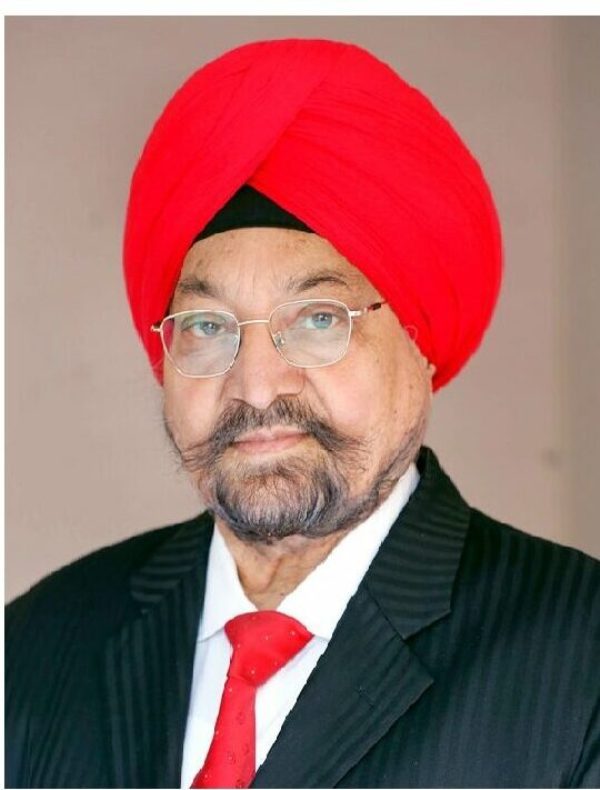
On August 9, the Supreme Court of India granted bail to Delhi Deputy Chief Minister Manjit Sisodia, marking a significant moment in a case that has drawn national attention. Sisodia, a prominent leader of the Aam Aadmi Party (AAP), had been incarcerated for 17 months under circumstances that many believe were politically motivated. His arrest and the prolonged detention have raised serious questions about the integrity of India’s legal and political systems.
Manjit Sisodia was arrested on March 3, 2023, in connection with an alleged liquor policy scam in Delhi. The Central Bureau of Investigation (CBI) and the Enforcement Directorate (ED) accused Sisodia of involvement in irregularities related to the Delhi Excise Policy, which was claimed to have caused significant financial losses to the government. The charges against Sisodia included money laundering, corruption, and abuse of power. However, from the outset, the case against him appeared tenuous, with the evidence presented by the investigating agencies coming under scrutiny.
Despite the high-profile nature of the case, the investigating agencies failed to present a solid case in court. Over the course of 17 months, no formal charges were filed against Sisodia, and the evidence against him remained unconvincing. The prolonged detention without trial led to widespread speculation that the case was less about justice and more about political retribution. The Supreme Court’s decision to grant bail to Sisodia is a reflection of the growing concerns over the misuse of investigative agencies for political ends.
The CBI and ED’s handling of the case has raised serious questions about their independence and the potential influence of the central government. The agencies’ inability to produce substantive evidence against Sisodia suggests that the case may have been politically motivated. The Modi government, which has been at odds with the AAP government in Delhi, is seen by many as using these agencies to target its political rivals.
The timing of Sisodia’s arrest and the prolonged nature of his detention suggest a deliberate strategy to undermine the AAP government. The BJP, which has struggled to dislodge the AAP from power in Delhi despite multiple attempts, may have viewed Sisodia’s arrest as a way to destabilize the Kejriwal administration. By keeping Sisodia and other senior AAP leaders like Satyendra Jain and Arvind Kejriwal entangled in legal battles, the BJP could have hoped to create administrative chaos in Delhi and weaken the party’s standing among voters.
The case against Sisodia and his prolonged incarceration without trial represent a significant challenge to India’s democratic norms. The principle of the rule of law requires that individuals accused of crimes be given a fair and timely trial. However, in Sisodia’s case, this fundamental right appears to have been denied. The 17-month-long detention without any substantial legal proceedings raises concerns about the erosion of civil liberties and the potential misuse of state power.
The Modi government’s approach to dealing with political opponents through legal means reflects a worrying trend in Indian politics. By leveraging the power of investigative agencies, the government can sideline opposition leaders, reducing their ability to function effectively and weakening democratic checks and balances. This tactic not only undermines the rights of individuals like Sisodia but also poses a broader threat to the health of India’s democracy.
The Supreme Court’s decision to grant bail to Sisodia is a critical intervention in this context. It signals that the judiciary remains a vital check on the excesses of the executive branch. The Court recognized that Sisodia had been kept in detention for an extended period without any formal charges being brought against him. This decision reaffirms the importance of upholding individual rights and ensuring that the legal process is not misused for political purposes.
However, the case also highlights the limitations of the judiciary in dealing with the sheer volume of politically motivated cases. The Modi government may have calculated that the lower courts would be hesitant to challenge the actions of powerful investigative agencies, and that the Supreme Court, burdened with numerous cases, might take time to address such issues. This strategy of delay and legal entanglement is a tactic that can be used to keep political opponents in a state of limbo, even when the evidence against them is weak.
The Sisodia case underscores the need for a thorough review of the powers granted to India’s investigative agencies. The ability to arrest and detain individuals for extended periods without trial is a draconian measure that can easily be abused. There is an urgent need to reform the laws governing these agencies to ensure that they operate within the bounds of justice and fairness. This includes setting clear guidelines for the initiation of investigations, the collection of evidence, and the timelines for bringing cases to trial.
The case also calls for greater judicial oversight of the actions of these agencies. The judiciary must be empowered to act swiftly to prevent the misuse of power and to protect the rights of individuals. This includes the ability to scrutinize the evidence presented by investigative agencies and to ensure that arrests and detentions are based on solid legal grounds, not political calculations.
The Supreme Court’s decision to grant bail to Manjit Sisodia is a welcome step in correcting a serious miscarriage of justice. However, the case highlights the broader issues of political interference in the legal system and the potential abuse of power by investigative agencies. As India grapples with these challenges, it is essential to reaffirm the principles of democracy, the rule of law, and the protection of individual rights. The Sisodia case should serve as a catalyst for much-needed reforms to ensure that the legal system is not used as a tool for political vendettas, but as a means of delivering justice fairly and impartially. The motto “Satyamev Jayate” needs to be seen in practice , and not just as an emblem in government offices and the portals of the courts.



Be the first to comment